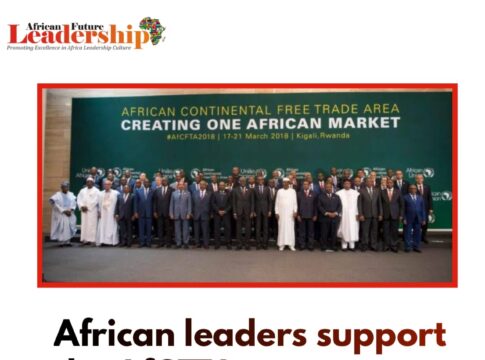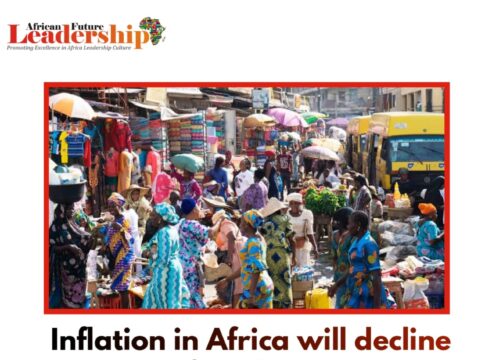African and international leaders have approved the release of a first-of-its-kind report on how public-private partnerships can support the implementation of the African Free Trade Area (AfCFTA).
At the annual meeting of the World Economic Forum (WEF) yesterday, leaders endorsed the report “AfCFTA: A New Era for Global Business and Investment in Africa”, which highlights the strong potential of investment companies in the business sector free in the world’s largest.
The report lists high potential sectors, business and investment support initiatives, tools to support the AfCFTA and examples of successful businesses in Africa to guide businesses to enter and grow in this sector.
It also aims to provide a way for global businesses and investors to understand key trends, opportunities and strategies for investing effectively and achieving high returns in Africa, developing regional, sub-regional and continental value chains and stimulating productivity, which go hand in hand with the success of AfCFTA.
The report focuses on four key sectors with a total value of $130 billion (R2.2 trillion) and represents high opportunities for companies looking to invest in Africa.
These sectors are automotive; agriculture and agroprocessing; pharmaceuticals; and transport and logistics.
READ MORE: Vice President of Gambia confirmed dead in India
AfCFTA secretariat Wamkele Mene said these sectors were industries of enormous potential for investment in Africa.
“Macro trends in the four key sectors and across Africa’s growth potential reveal tremendous opportunities for business expansion as population, income and connectivity are on the rise,” Mene said.
WEF Regional Action Group for Africa co-chair Landry Signé concurred, saying that investment in these sectors would propel the development agenda of the continent.
“These plans reveal an unprecedented opportunity for local and international companies to invest in African countries and play an important role in the development of regional and regional value on the continent,” Mr. Signé said.
Considering that the continent has less direct foreign exchange compared to other regions, the report highlights the prospect of happiness as the AfCFTA reduces or removes barriers business and competition.
Chido Munyati, head of the WEF Africa region said, “The promising value of the integrated African market should be a signal to investors around the world that the continent is ripe for the creation, integration and expansion of business.”
The WEF is working hard to implement trade and investment instruments consistent with the AfCFTA negotiation process by identifying areas where public-private partnerships can help reduce barriers and support international investment institutions.
To do this, the organization is helping to advance these goals across five key areas to strengthen Africa’s physical, capital and digital infrastructure and promote inclusive and sustainable development. WEF President Børge Brende said global business has an important role to play in promoting the implementation of the AfCFTA.
Brende said Africa has learned from trade liberalization in North America and Europe to ease the pain of transitioning to its new single market. “Our partners and diverse experience can help anticipate and mitigate potential disruptions to business and productivity,” said Brende.
“The initiative of the conference will help support the physical, capital and digital infrastructure in Africa through the involvement of organizations, cooperation with the public and sharing of information.”
AfCFTA is the largest free trade area in the world, by area and number of participating countries. When fully integrated, it will be the fifth largest economy in the world, with a total gross domestic product of more than $3.4 trillion.
Conceived in 2018, it now has 54 national economies in Africa, can attract billions in foreign investment, increase foreign exports by a third, double intracontinental trade, increase their income gained by 8% and left 50 million people of poverty.




